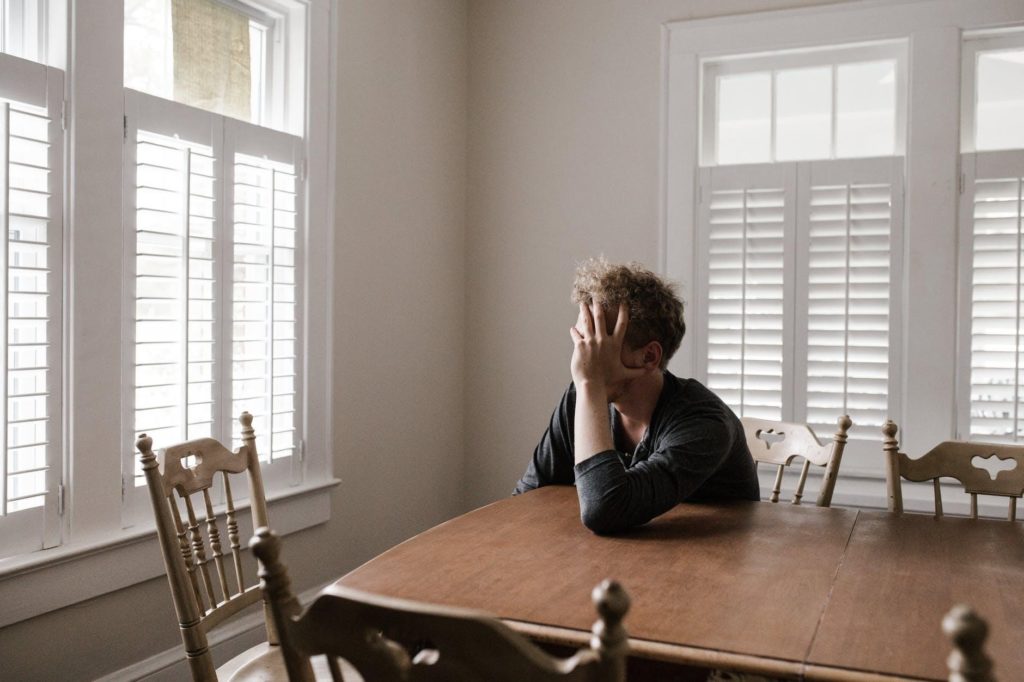Having Unwanted Thoughts? Learn What Are They And How To Stop Intrusive Thoughts

You’re on vacation and you finally have the time to yourself. While relaxing and drinking a hot cup of tea, your mind conjures up unwanted and intrusive thoughts… how would you feel? Distressed or anxious, right?
This is what intrusive thoughts do to you. These unwanted thoughts are the ones that will stick in your mind and will make you dwell on things you didn’t want to. And while intrusive thoughts are not dangerous, they can cause anxiety and feelings of distress that can disrupt your life.
In this blog, we’ll be taking a closer look at what are intrusive thoughts, the causes of these thoughts, and how to stop intrusive thoughts.
What Are Intrusive Thoughts?

Intrusive thoughts are unwanted thoughts that cause distress and anxiety as they can be unsettling. Intrusive thoughts can often recur making the situation more unpleasant.
Intrusive thoughts are often hard to let go of and can turn violent. These thoughts appear out of nowhere and don’t often carry a meaning. Usually, these thoughts are just thoughts, albeit unwanted and disturbing.
However, these thoughts only gain power when you, the one having these thoughts, start to worry about their consequences. Many people can feel ashamed of having intrusive thoughts and may keep a secret about them from their loved ones.
Remember, as long as you recognize these thoughts as merely thoughts without any desire to act upon them, these unwanted and intrusive thoughts remain unharmful.
Intrusive Thoughts Can Be Triggered By

Anyone can have intrusive thoughts but many people are afraid to admit their unwanted thoughts fearing being shunned from society. Not always are intrusive thoughts resulting from a mental health disorder. However, certain conditions can trigger intrusive thoughts:
1. Obsessive-Compulsive Disorder
When your intrusive thoughts become harder to control, that’s where OCD develops. The intrusive thoughts (obsessions) are what make you repeat actions (compulsions). An example of OCD intrusive thoughts can be worrying about (and checking) locked doors. This kind of obsessive-compulsive behavior can severely affect your lifestyle.
2. Post-Traumatic Stress Disorder
Post-traumatic stress disorder (PTSD) also causes intrusive and unwanted thoughts. Often, these thoughts can be related to a traumatic event and can trigger symptoms of PTSD. In severe cases, intrusive thoughts can even cause flashbacks and psychological distress.
3. Eating Disorder
Yes! Eating disorders can also cause intrusive thoughts. Unwanted thoughts, when it comes to eating disorders, can slowly cause harm to one’s physical and mental health. If you’re struggling with an eating disorder, then you’ll frequently find yourself worrying about how food will impact your body, and constantly worrying about this can cause distress when eating.
What Causes Intrusive Thoughts?
Intrusive thoughts can happen to anyone at any time. While many thoughts may wander in and out, intrusive thoughts are there to stay. In many cases, intrusive thoughts can be because of OCD or other mental health disorder but other times, they can be from:
- A traumatic brain injury
- Dementia
- Parkinson’s disease
How To Stop Intrusive Thoughts
There are many ways on how you can overcome intrusive thoughts. Here are some tips on how to get rid of intrusive thoughts:
Professional Treatment

1. Cognitive-Behavioral Therapy
One of the best ways to stop intrusive thoughts is with the help of cognitive-behavioral therapy (CBT). In this therapy, you learn ways to think and react to your thoughts until they stop controlling you. A therapist can help you identify your triggers of intrusive thoughts and help you learn effective ways to get rid of them.
2. Medication
With conditions like OCD and depression that may cause intrusive thoughts, it can be managed with the help of certain medications like antidepressants and selective serotonin reuptake inhibitors. Always consult with a professional before taking any medications as many medications can have side effects that can worsen your condition.
Self-Help Strategies

1. Don’t Ignore The Thoughts
When we think of an unwanted thought, our instinct is to ignore the thought, right? Unfortunately, ignoring intrusive thoughts is not the right way to get rid of them. Instead of suppressing your intrusive thoughts, try to divert your attention from it by engaging in a healthy distraction, for example, reading a light-hearted book or solving a crossword puzzle.
2. Understand Thought vs Reality
When you think of an intrusive thought you may think that you’d act them out and hurt your loved ones. But, as I said before, intrusive thoughts are merely thoughts and the power to act on them is in your hands. With this in mind, accept your thoughts but don’t let them cloud your reality.
3. Identify Your Triggers
Never are our thoughts random but our daily actions and lifestyle can trigger them. When you’re faced with an intrusive thought, write them down. This will help you identify the triggers that cause these thoughts. Once you identify the pattern, you’ll have a better understanding of how to beat intrusive thoughts.
4. Bring A Positive Change In Your Lifestyle
When you’re surrounded by positive people and a positive lifestyle, you’ll have less space for unwanted and intrusive thoughts. You can incorporate changes like:
- Healthier eating habits
- Practicing yoga daily
- Walking in nature
- Practicing relaxing exercises
Changing your mindset can help change your thinking patterns.
5. Talk About Them
Intrusive thoughts can be shameful and violent. Such thoughts can make it harder to share them with someone – be it a loved one or a professional. However, thoughts are thoughts and nothing to feel guilty about. To stop intrusive thoughts, you need to talk about them. Sharing your thoughts with someone can also help you gain a new perspective.
Writer’s Thoughts
We think thousands of thoughts in a day – some negative and some positive. Unwanted thoughts can be challenging to deal with but it’s not impossible to stop intrusive thoughts. If you’re having intrusive thoughts because of a mental health disorder such as OCD or PTSD, you can seek professional treatment to learn how to stop intrusive thoughts.
Intrusive thoughts can cause distress and stick in our mind, refusing to go but they only become powerful when we let them control our actions. Having intrusive thoughts does not mean that you’re struggling with a mental health disorder.
Remember, intrusive thoughts are just thoughts at the end of the day. However, if your intrusive thoughts are disrupting your daily life, then it’s recommended that you seek professional help.
If you’d like to connect with a professional, you can visit BetterHelp by clicking the link below or write to us at info@calmsage.com.
Ever had intrusive thoughts before? How did they affect your life? Let us know in the comments below!
Take Care!




















